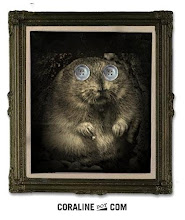This final part of the book provides a very detailed (and typically anachronistic) mythology of JG's roots.
So, what interests you in this account? Do you see any connections to earlier parts of the novel? Are any of the underlying issues clarified by this section? Who is the ostensible narrator of the history told here?
Beginning in Chapter 52 of Ishmael Reed’s Mumbo Jumbo there is an odd yet detailed account of the origins of Jes Grew and its destroyers. This story begins with a tale of Egyptian gods Osiris and Set. Osiris is the god of the underworld, but also a giver of life. Set, his brother, is appropriately known as the god of the desert – a dry, barren place. Osiris is, to one degree or another, patient zero in the Jes Grew epidemic. His brother is the initial destroyer of the “disease”. This all makes perfect sense until Reed inserts into the story facts about World War II, the Korean War, and the Indochina War. To complicate matters more, he adds Moses to the story of the Egyptian Gods.
This meshing of entirely different worlds indicates that Reed thinks religious texts are ultimately made up anyway. Moses, who the Atonists and other Christians would believe to have been real, is seen here as only as physically real as figures from Egyptian myth. They co-exist in Reed’s world. If religious texts are simply created from myth and then recorded in a text, they are no different than a fictitious novel. This tears religion down to the level it needs to be before Reed can insinuate that art is religion, or as he alludes on page 168, Rock’n’Roll is religion.
One thread that remains common in the history Papa LaBas is relating throughout these pages is the idea of the more conservative citizens trying to keep the more open-minded down. Set takes such drastic measures to remove this perceived threat that he kills his brother. We then see Moses as a parallel to Hinckle Von Vampton. First, like Von Vampton, Moses secretly sneaks into the places where Jes Grew is thriving. Later, he is recruited by Set to try and bring down the movement and he results to lying and working within Jes Grew to try and stop Jes Grew. It is all very cyclical like the time and plot in the novel, but ultimately, it demonstrates the traditionalists will stop at nothing to protect their power and their “right way”.
The beauty in the idea of Jes Grew is that it “has no end and no beginning… it will come back, and when it returns we will see that it never left… there is really no end to life, if anything goes it will be death” (204). Jes Grew is life. It is real living – emotion, art, sex, entertainment – something other than just going through the motions every day. This line insinuates that the joy and spark in the people will never die. The political and social hegemony will always have to continue the fight if they want to prevent outbreaks, but in the end, it cannot be stopped. If anything finally disappears, it will be the idea of boring traditional life.
